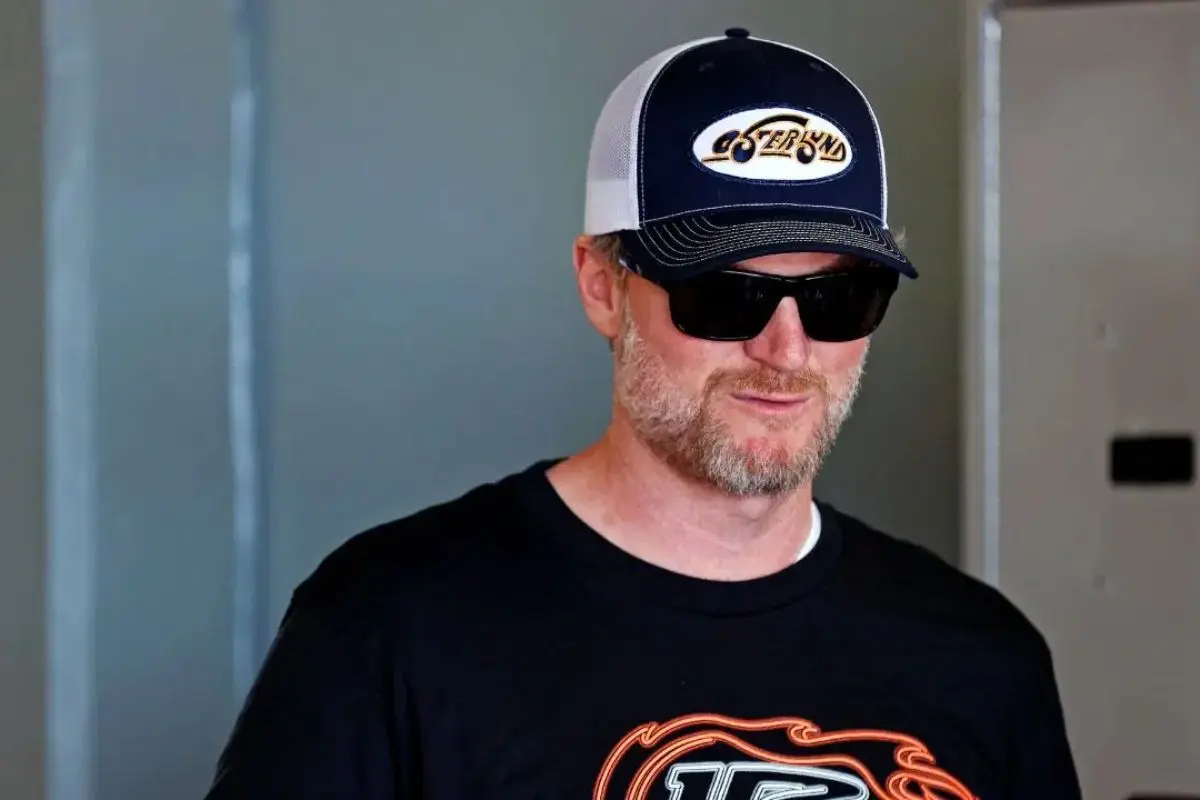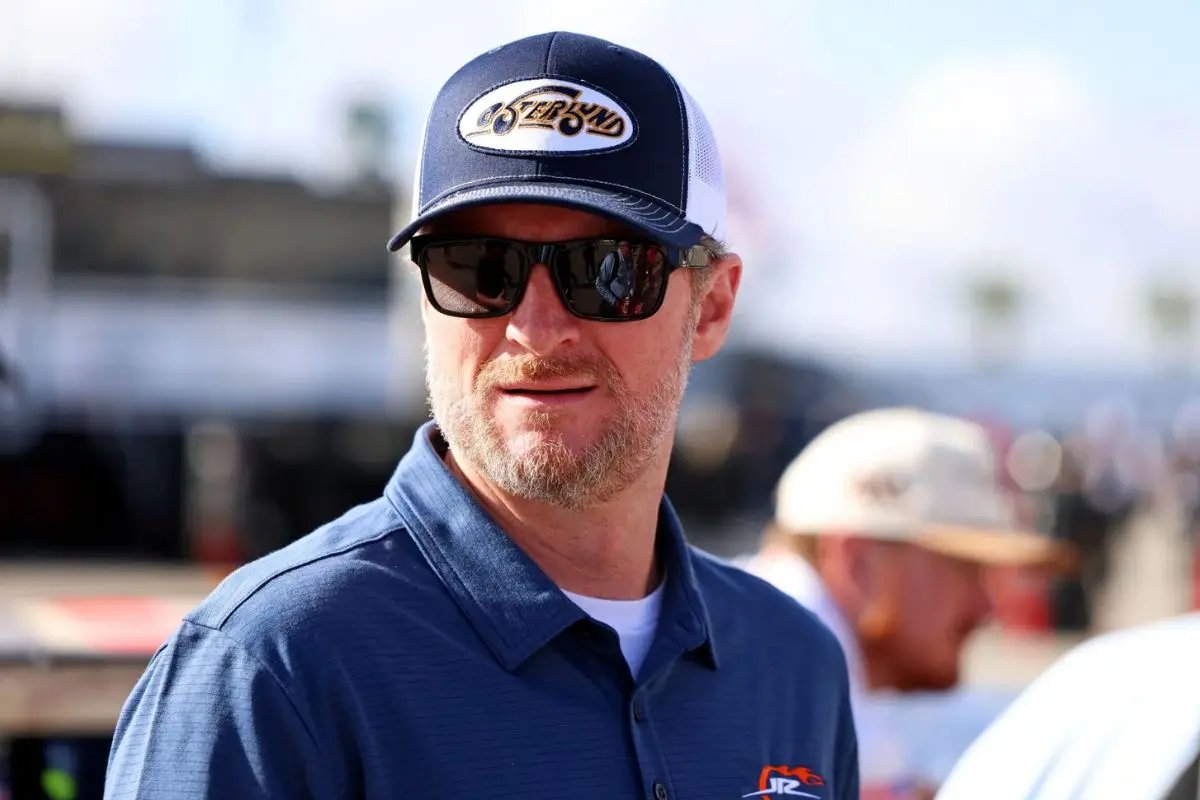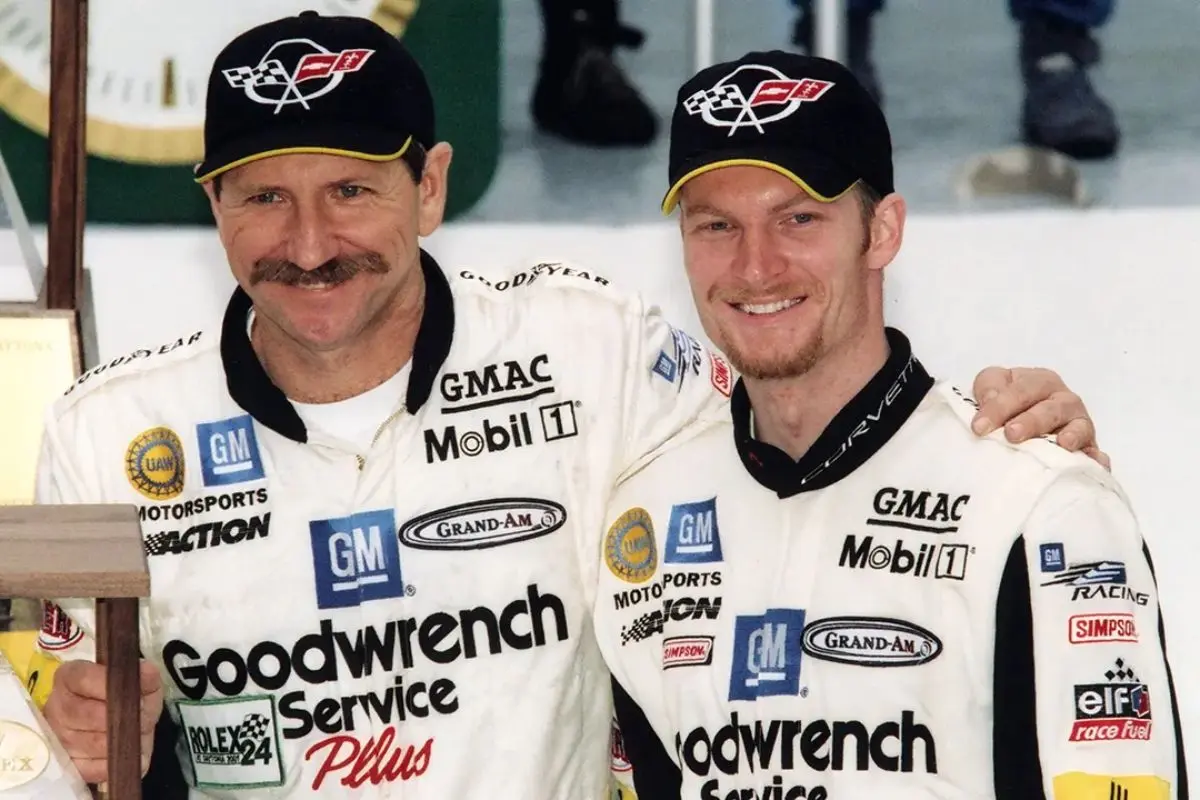Dale Jr. openly shares his childhood mischief involving his legendary father, Dale Earnhardt. These formative years were marked by playful defiance, from pilfering keepsakes to orchestrating a clever Game Boy heist. The tension between admiration and rebellion demonstrated a complicated father-son dynamic. As Dale Jr. recounts these adventures, he invites reflection on the lessons learned and the expectations placed upon him as the son of a racing icon. What deeper insights might these memories reveal?
Key Highlights
- Dale Jr. often pushed boundaries in his youth, embodying a “loose cannon” persona that sparked mischief and trouble.
- He snuck away with his father’s business cards, showcasing a blend of admiration and rebellion against Dale Sr.’s legacy.
- In a quest for a Nintendo Game Boy, Jr. raided Dale Sr.’s water jug for quarters, illustrating his childhood mischief.
- Confrontations with Dale Sr. over his escapades highlighted the tension between ambition and accountability in their relationship.
- These episodes reflect the dynamic between a legendary father and a son navigating his own identity in the racing world.
Dale Jr.’s Wild Start in Racing
Dale Earnhardt Jr. burst onto the racing scene with an thrilling presence that mirrored his childhood antics.
His early career in the late ‘90s Busch Series and subsequent shift to the Cup Series displayed a daring spirit that captivated fans. Known as a “loose cannon,” Junior pushed the limits of his vehicles while engaging in a lifestyle that blended high-octane racing with unapologetic revelry.
This raw energy often led to clashes with his crew, highlighting a penchant for spontaneity over careful strategy. Yet, it was this unpredictable charm that endeared him to the racing community, propelling him to stardom.
His childhood mischief, once a source of trouble, became the foundation for the audacious racer he would ultimately become.

Junior Sneaks His Dad’s Keepsakes
Curiosity often led Junior to investigate the hidden corners of his childhood home, a place rich with his father’s history.
In the depths of closets, he uncovered gems from Dale Sr.’s early days, including business cards from 1976—artifacts of a time when his father was hustling for sponsors.
Driven by youthful mischief, Junior swiped a handful and took them to a local card shop in Kannapolis, unknowingly crossing a line.
When Dale Sr. caught wind of the theft, the repercussions were swift and severe; Junior learned that even the smallest keepsakes held considerable value.
“I would snoop around this house like I was always curious as to what Dad and them were hiding and what they had in the closets. Some of Dad’s very first business card from 1976, so I go out there and I grabbed a handful of them. I take this card to a card shop in Kannapolis, and I sold it. About a couple weeks later, Dad comes into the room or calls me upstairs or whatever, and he goes, ‘If you got in my closet, got some of them business cards out there,’ and I got big-time punishment.” – Dale Earnhardt Jr.
This incident encapsulated the complex dynamics of admiration and rebellion that characterized their relationship, marking a crucial moment in Junior’s understanding of respect and legacy.
It takes guts to try to pull one over on dad, a.k.a The Intimidator … twice. 📇😅 @DaleJr | @AmyEarnhardt pic.twitter.com/KLaahynqtr
— Dirty Mo Media (@DirtyMoMedia) September 6, 2025
The Game Boy Heist
In the early ’90s, a young Junior found himself steering the fine line between childhood mischief and the lessons of responsibility imparted by his father.
In a bold move, he raided the giant water jug in Dale Sr.’s room, extracting $80 in quarters earned from race winnings. This impulsive act fueled his desire for a Nintendo Game Boy, a coveted prize that cost nearly all he’d pilfered.
The next day, Junior reveled in his new acquisition, blissfully unaware of the storm brewing. Dale Sr. quickly noticed the conspicuous Game Boy, leading to a confrontation that landed Junior in “big trouble.”
“He had this big water jug in his room, and he would always come home with change in his pocket and put it in there over and over and over, and I pulled about 80 bucks out of that thing and quarters.”
“One day I went and bought me a Game Boy and some games and then was playing it on the couch the next day. And they’re like, ‘Where the hell did you get that?’ and I got into big trouble.” – Dale Earnhardt Jr.
This episode became a formative lesson, illustrating the delicate balance between ambition and accountability, shaped by a legendary father’s watchful eye.

Dale Jr. Breaks Down NASCAR’s Playoffs
Reflecting on the evolution of NASCAR, Junior expressed a longing for the days when every race held the weight of a championship battle.
He articulated a poignant critique of the current playoff system, lamenting the diminished stakes that once defined each event.
“What I think I’m missing and what I believe has more value than people realize is, so we’d be racing along, right? We’d go to Charlotte in October. There’s probably 8 to 10 races left in this season, right? Dad’s right in the thick of the battle, right? Say he’s 40 points behind Rusty Wallace or Mark Martin or somebody, right? And we go to Charlotte, and 13 laps into the race, he broke a cam and [finished] last. That felt like a gut punch.” – Dale Earnhardt Jr.
Dale Jr. recalled the tension of races in which a single misfortune could derail a season; his father, Dale Sr., faced the gut-wrenching reality of a blown engine that could cost him critical points.
This high-drama narrative, where every moment counted, sharply contrasts with today’s playoff format, which resets the standings, lessening the impact of regular-season outcomes.
For Junior, the thrill of uncertainty and peril, integral to the sport’s charm, has been significantly diluted in modern racing.
A Call for the Old System
While many fans have grown accustomed to the current playoff format, Dale Jr. advocates passionately for a return to the traditional points system that characterized NASCAR for decades. He envisions a straightforward approach, emphasizing consistency over the emotional upheaval of playoff eliminations. Jr. proposes a winner-take-all format across 36 races, reflecting a purer competition.
Run 36 [races], it’s no big deal. Say, Ohio State (football) loses the sixth game of the season in a season they know they can’t lose games, right? What if they up and lost that sixth game of the season? Think about the emotional roller coaster that you go on at that point of the year.” – Dale Earnhardt Jr.
Jr.’s call for the old system echoes a deep connection to NASCAR’s roots, advocating for clarity and true racing merit.

News In Brief: Dale Jr Reveals Childhood Trouble With Legendary Father Earnhardt
Dale Jr.’s childhood mischief, marked by his spirited defiance and admiration for his father, shaped the man and racer he would become. These playful yet rebellious antics not only highlighted the unique challenges of living up to the Earnhardt legacy but also served as valuable lessons in accountability and ambition. As he reflects on these formative experiences, Dale Jr. continues to navigate the complexities of his own racing career, bridging the gap between nostalgia and the future of NASCAR.
ALSO READ: Dale Jr’s Xfinity Champ Reveals Shocking Twist in Zilisch Rivalry
